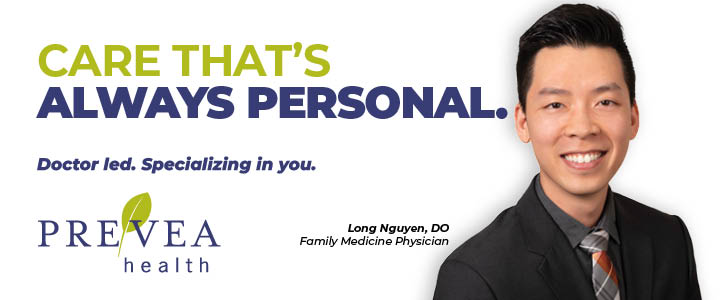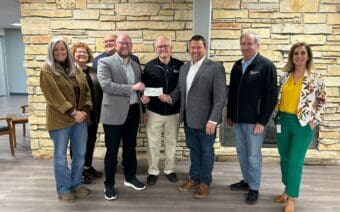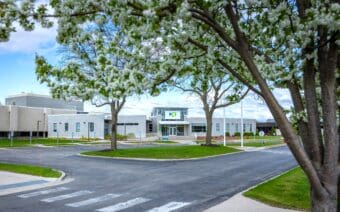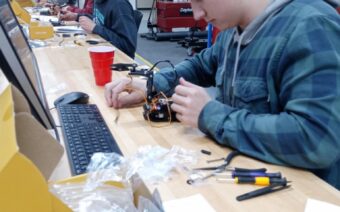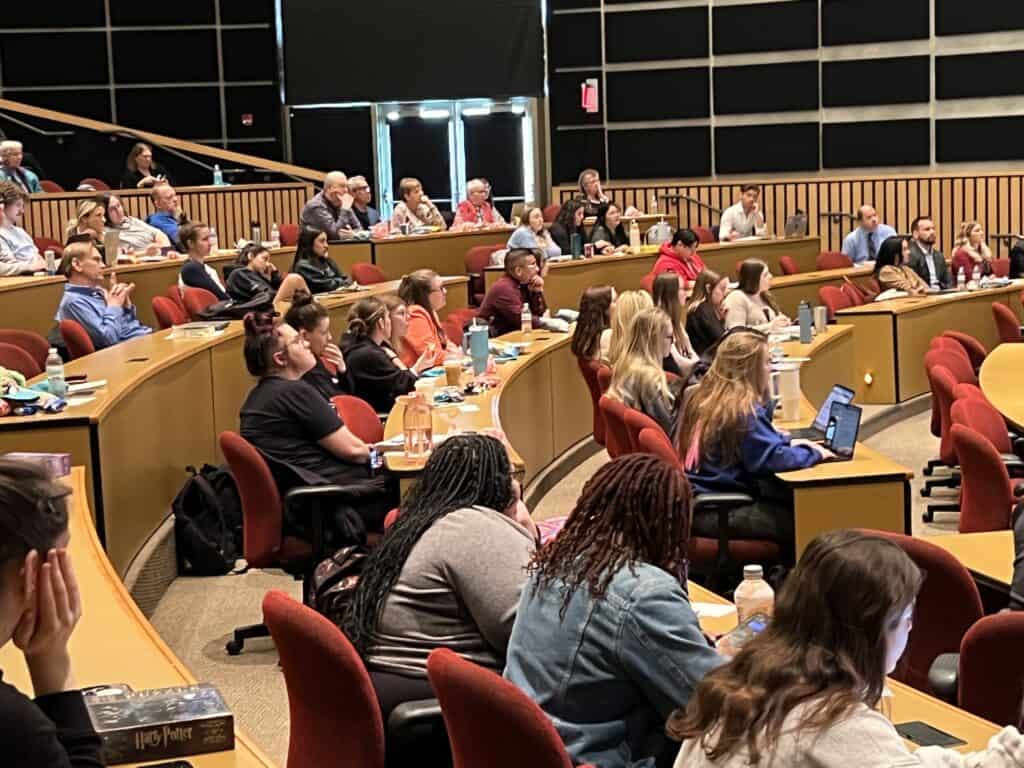
March 10, 2025
FOND DU LAC – To help educate the Greater Fond du Lac community on the impact of technology and communication, Marian University is hosting its 18th Academic Symposium March 25-26 – an event open to students, faculty, staff, emeriti and members of the greater community.
Dr. Sheryl Ayala, faculty emerita, said the event will take a deeper look at how technology impacts “our lives and the lives of our leaders.”
“Years ago, (before the first symposium took place,) I’d spend my free time reading about stem cell research on the computer at lunchtime,” she said. “I eventually went to the president (of Marian) and said, ‘We need to bring people in and talk about controversial things that will impact our students, community and the community of scholars on a broader base.’”
Ayala said when she mentioned the stem cell idea, the president thought it was “pretty controversial.”
“He thought maybe I could just discuss it in my classes,” she laughed. “I spoke to my council of chairs at the time, and they were all in favor of it. That was the first symposium, and after that, it caught on.”
In future years, Ayala said topics were chosen “based on how much controversy they brought with them,” giving the community an opportunity to discuss these issues with a variety of opinions/perspectives presented.
“With our topics, we’ve always wanted to bring all sides of the discussion into things,” she said. “We don’t take a stand on these issues, but we explore both sides. We then bring in speakers from both sides who can give relevant information and let participants decide for themselves.”
According to Sister Donna Innes, the topics have been chosen based on what was going on in the country/world at the time.
Innes said symposium topics also have to appeal to Marian students and faculty.
“I think most people probably feel that because we are a small, liberal arts Catholic college, we stay away from controversial topics, but we don’t,” she said.
Symposium organizers said other topics over the years have included happiness, whether a liberal arts education is really necessary, civility, the Affordable Care Act, etc.
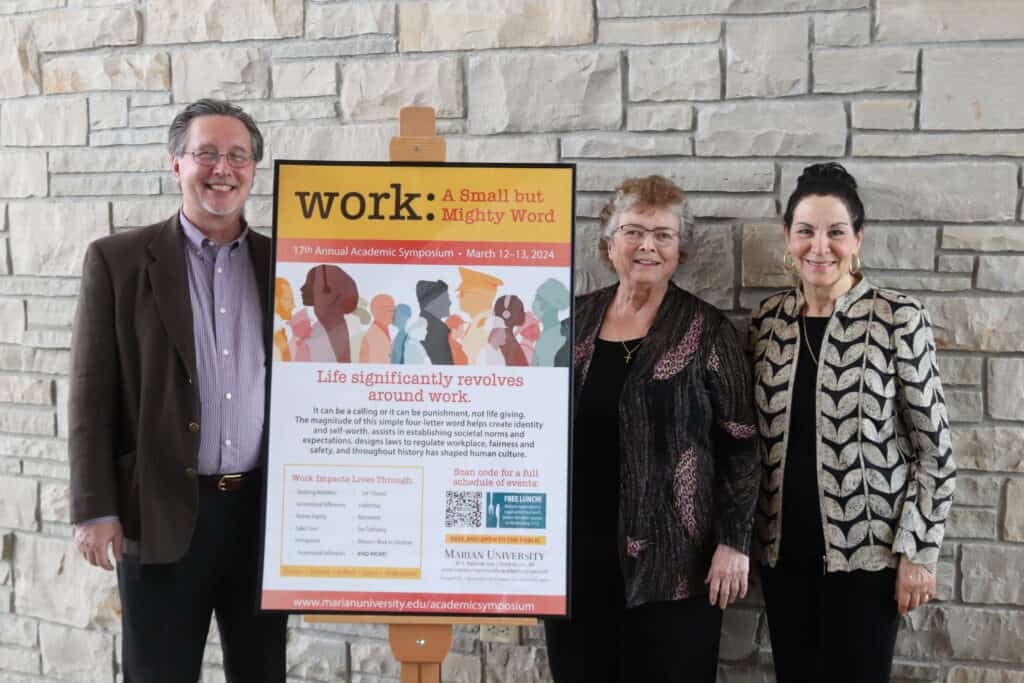
“I think all of the past symposiums have done their job,” Ayala said. “We do evaluations after every one, and the comments we’ve gotten from people have been extremely positive – so much so that people want us to look at topics again and extend the discussion. We’ve always gotten great feedback.”
This year’s symposium
Organizers said though technology has entered discussions in past symposiums, it has never been the main topic like it is this year.
“What we thought was, with the wide array of technology available within America and our world society, it’s a very pertinent topic,” Professor James T. Gray said. “Over the years, the older generation would like to see more in-person types of discussions compared to more technology-based discussions the younger generation wants and uses – that’s the way they’ve been raised.”
Technology, Ayala said, touches everyone’s lives.
“As an academic institution, we want to look at how technology can help or hurt us,” she said. “And, is it something that does both? Does it have a light side and a shadow side? Yes, there is a shadow side to technology where it hurts us, but when it’s done well, it can be advantageous – but there are always going to be people who use it for more less-than-ideal purposes. This happened when the internet first came out. AI (artificial intelligence) is one of those hot topics in technology right now.”
Ayala the symposium will discuss the many positives of technology, such as virtual collaboration, computer-generated medical diagnosis and remote workplaces.
Another responsibility of this year’s symposium, she said, is to teach people to be critical of the information they see on the internet.
“Anybody can (put) anything out on the internet – it doesn’t have to be correct,” she said. “We need to teach students to think critically about what they’re reading, and then have them decide whether what they’re reading is actually accurate before they pass it on.”
Gray said another topic of discussion with technology is that just because we can do certain tasks, it doesn’t mean we should.
“While we may have the ability with technology, the question becomes, ‘Should we be doing certain things, and are they ethical?’” he said.
Ayala took that one step further.
“(Sometimes), as soon as we can do something new with technology, we tend to do it,” she said. “Many times, it jumps way ahead of any kind of regulation or law – that’s what brings about a lot of the negatives in technology use. It boils down to, ‘Just because we can, should we?’”
According to the symposium website (marianuniversity.edu), “technology and communication have evolved significantly in the 21st century, with uses ranging from the positive, such as virtual collaboration and computer-generated medical diagnosis and remote workplaces, to abuses, such as scamming elders and social media bullying.”
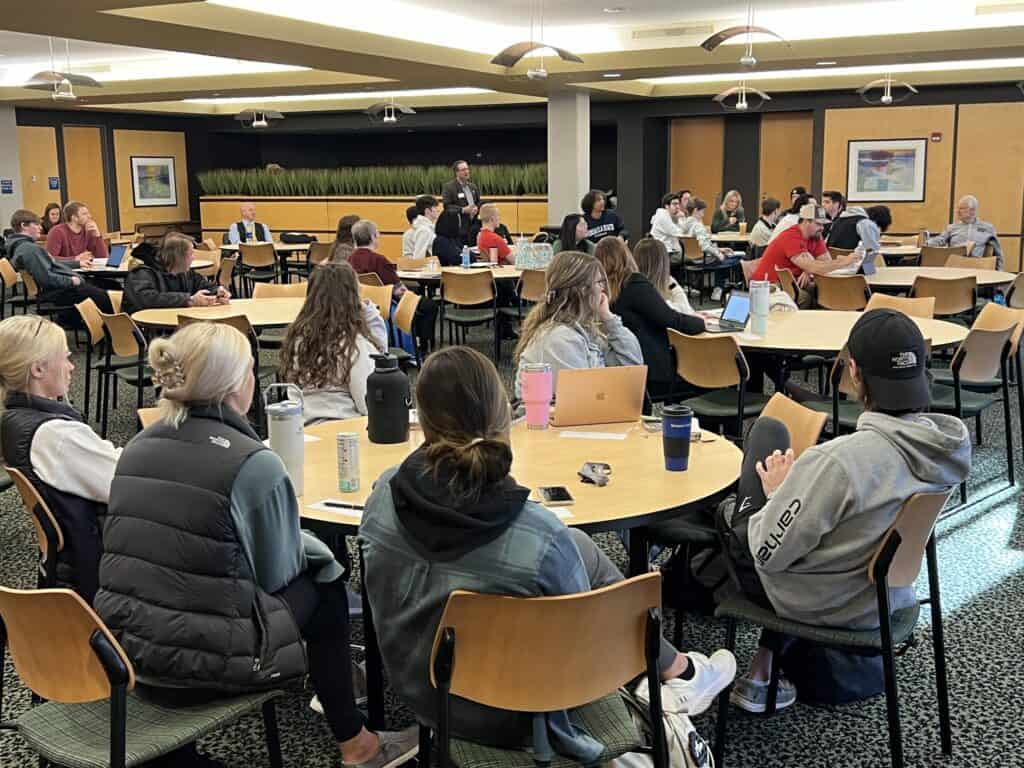
Organizers said that with a wide range of digital platforms (Zoom, Teams and social media) available, people are challenged to establish and maintain effective interpersonal communication that respects and enhances the goals and ethics of all.
“Now you see kids two or three years old holding a device in their hands, while my generation was reading books to kids at that age,” Cathy Mathweg – who served as Marian’s dean of academic advising and academic services before retiring in 2020 – said. “I think there can be both – it’s how you’re using it. Technology isn’t going anywhere, but we have to make informed decisions on how to use it… and use it well.”
Ayala said the event will also explore how communication technologies impact leadership, diversity, equity, inclusion and emotional intelligence
She said it will feature a mix of presentations, panel discussions, and interactive sessions.
Highlights of the symposium, which are on the event’s website, will include:
- In what ways are moral, social, ethical/legal, economic, environmental and educational changes affected by technology and AI?
- What are the pros and cons of communicating through technology versus in person?
- What is “effective communication” in the digital age?
- How do leaders at all levels weigh accuracy versus manipulation of information in effective communication?
- What potentially harmful effects can result from abuse of communication technology?
- What role should AI play in the effective use of communication and our current understanding of creative ownership and plagiarism?
- In what ways might technology benefit both individuals and society?
- How do we balance emotional intelligence and digital literacy?
- What are some best practices for managing remote work environments?
 Horsing around is a way of life for two sisters in De Pere
Horsing around is a way of life for two sisters in De Pere Bringing the convenience of the city to the middle of nowhere
Bringing the convenience of the city to the middle of nowhere

